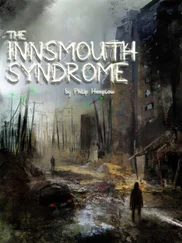In the first case — the old-style white and the old-style black — each knows exactly where he stands with the other. Each can handle the other, the first because he is in control, the second because he uses his wits. They both know this and can even enjoy each other.
In the second case — Ted Kennedy and Jesse Jackson — each is walking on eggshells. What to say next in this rarified atmosphere of perfect liberal agreement? What if one should violate the fragile liberal canon, let drop a racist remark, an anti-Irish Catholic slur? What if Jesse Jackson should mention Hymie? The world might end. They are glad to get it over with. What a relief! Whew!
Frowning and falling back, Bob Comeaux even gives possible arguments I might have used so that he can refute them.
“In using the word infanticide, you see, you are dealing not with the issue but in semantics, a loaded semantics at that.”
“I didn’t use the word.”
Bob shrugs and turns away, his eyes suddenly distant and preoccupied, like an unsuccessful suitor.
7. HOME TO THE QUARTERS. We’ve lived there for years. Sure enough slave quarters they were, from an old indigo plantation, twenty or so sturdy brick boxes with stoops and kitchen gardens, attached like row houses with chimneys in common, lined up under the cliff and along the bayou like old Natchez-under-the-hill, repossessed by vines and possums — where no white folks had dreamed of living for a hundred years.
Even when we were poor, Ellen fixed ours up with authentic iron hooks and pots for the fireplace. Then Ellen and my realtor mother, Marva, teamed up and between them became a realestate genius, my mother being naturally acquisitive, thinking money, Ellen having natural good taste. They bought the whole row for a song and during the time I was away borrowed money, added two stories painted in different pastels like the villas of Portofino, stuck on New Orleans balconies, put a tiny dock in front of each and a Jacuzzi behind, calculating the place would be as prized now as it was misprized then, for being too small, too close together, too near the water — and named it The Quarters. All this during the two years I was detained by the feds at the minimal security facility at Fort Pelham, Alabama. They, Ellen and my mother, were like those fragile Southern ladies who, when their men, brave and somewhat addled, went off to that war, suddenly turned into straw bosses, hucksters, fishwives, tallywomen, slickers.
Here is my mother, before she took to her bed in her own nursing home, pitching to a client, more likely than not a West Texas oilman or a Massachusetts account executive removed to New Orleans, frightened by the blacks, bugging out to the country, looking for a weekend place on the water and what he conceived to be authentic historical Louisiana quaintness. Mother: “Notice the walls, authentic slave brick, eighteen inches thick, handmade by the slaves — many were magnificent artisans, you know — from local clay from claypits right up the bayou— it’s all gone now, the clay and the art, a lost art, notice that odd rosy glow. You hardly need air conditioning with these walls— they didn’t live so badly, did they? You see that bootscrape by the steps? Do you know what that is? an authentic brick form handwrought by the slaves. We think The Quarters combines the utility of a New York townhouse with the charm of a French Quarter cottage, don’t you?” As a matter of fact, they did.
This is the real thing, she told them — and it was — and it makes Chateau Isles, Belle-this, and Beau-that look phony, don’t you agree? Yes, they did. The Quarters sold out at three hundred thousand per unit.
While I, a disgraced shrink, was doing time in Alabama, my wife and mother were getting rich selling slave quarters.
I am anxious to see Ellen. I’ve seen her once since she got back from Trinidad late last night, but she was so tired we hardly exchanged ten words. She slept like a child, on her stomach, mouth mashed open on the pillow, arm hanging off the bed. I put her arm up. It’s still splendid, her arm, as perfectly round and firm as a country girl’s.
There’s noise above — the kitchen is upstairs. I go up the tight spiral of a staircase, heart beating, but not with effort. Ellen’s not there. There’s only the help and the kids.
Hudeen’s at the stove. She’s eighty and infirm and gets to the kitchen by an outside elevator. She likes to come to work for a few hours. Ellen has installed her in a tiny square bounded by stove, fridge, sink, table, and stereo-V mounted in a bracket so that she need never take more than two steps in any direction, mostly sits, need never take her eye from the daytime drama that unfolds for four hours, precisely the four hours she’s here.
“Where’s Miss Ellen?” I ask her.
“Miz Ellen she still piled up in the bed!” says Hudeen in a soft shout, doing me the courtesy of touching the volume control of the stereo-V but not turning it down. “You talk about tired,” she says, still keeping an eye on the screen. “But she be down directly.”
Chandra, a young, very black woman, is playing Monopoly at the breakfast table with Margaret. Neither looks up.
Tommy is standing in the middle of the room, hands at his side, standing in place but footling a soccer ball, toeing, slicing, ankling, caroming the ball from foot to foot, idly and without effort.
I give Margaret and Tommy a hug. My children don’t know what to say to me. Margaret is still hot and sweaty from the school bus. She gives me her cheek and a swift sidelong look. She has straight black Ella Cinders hair and is secretive and knowing, twice as smart as a boy will ever be. In her thin brown body, sweet with the smell of hot cotton and schoolgirl sweat, there is both a yielding and a resistance. She’s a swift brown blade of a girl.
“Why you standing around?” Chandra asks me. Chandra is abrupt and unmannerly, but is the only one who will speak to me. “Why don’t you sit down?”
I sit down.
“You looking good, healthy for a change,” says Chandra to me. “Roll, Margaret.”
Tommy and Margaret are on an easy footing with old black Hudeen and young black Chandra. They look and talk past me, as if I were still a drunk, a certain presence in the house which one takes account of, steps around, like a hole in the floor. Are all fathers treated so by their children, or only disgraced jailbird fathers?
“Hudeen, what time is Miss Ellen coming down?” I ask, wondering whether to go upstairs.
“She be fine!” cries Hudeen softly, shelling peas and keeping an eye on the stereo-V. “She be down!” Is she telling me not to go up?
Long ago Hudeen gave up ordinary conversation. Her response to any greeting, question, or request is not the substance of language but its form. She utters sounds which have the cadence of agreement or exclamation or demurrer. Uhn-ohn-oh (I don’t know?); You say! You say now! , Lawsymussyme (Lord have mercy on me?); Look out! — an all-purpose expression conveying both amazement and good will.
Hudeen is barely literate, but her daughter went to college and became a dental hygienist. She married a dentist. They are as industrious, conventional, honest, and unprofane as white people used to be. They have five children, three girls named Chandra, Sandra, and Lahandra, and twin boys named Sander and Sunder.
Chandra is smart, ill-mannered, discontent, but not malevolent. She graduated in media and newscasting at Loyola, interned at a local station, worked briefly as a street reporter. She wants to be an anchorperson. The trouble is, she hasn’t the looks for it; she doesn’t look like a tinted white person, what with her Swahili hair, nose, lips, and skin so black that local light seems to drain out into her. Said Hudeen once, talking back to the TV as usual when somebody mentions black — Hudeen, who still has not caught up with the current fashion in the proper race name: colored? Negro? black? — “Black?” she said to the TV. “What you talking about, black? That woman light. Sunder he light. Sandra bright; Chandra now — we talking black!”—hee hee hee, cackling at the TV.
Читать дальше












